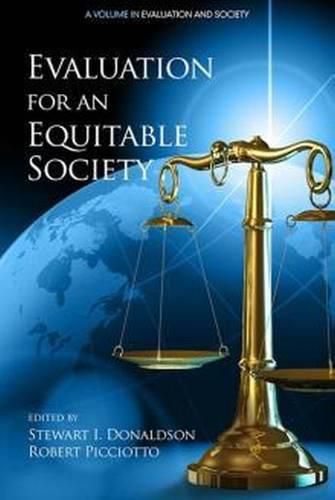Readings Newsletter
Become a Readings Member to make your shopping experience even easier.
Sign in or sign up for free!
You’re not far away from qualifying for FREE standard shipping within Australia
You’ve qualified for FREE standard shipping within Australia
The cart is loading…






This title is printed to order. This book may have been self-published. If so, we cannot guarantee the quality of the content. In the main most books will have gone through the editing process however some may not. We therefore suggest that you be aware of this before ordering this book. If in doubt check either the author or publisher’s details as we are unable to accept any returns unless they are faulty. Please contact us if you have any questions.
Governments and organizations of all shapes and sizes espouse values of equity and social justice. Yet, there are many examples of unfair social arrangements and employment conditions, dysfunctional government practices, and growing income inequality in both developed and developing countries worldwide. The profession and transdiscipline of evaluation is well equipped to address issues of inequality and social injustice, but until recently has been much more focused on primary stakeholder and donor satisfaction (being as useful as possible to funders of interventions and evaluations) and accountability concerns.
The authors in this volume challenge the field of evaluation to become more concerned about using evaluation to develop more equitable organizations, governments, and societies. Leading evaluation theorists and practitioners including Michael Scriven, Jennifer Greene, Thomas Schwandt, Emily Gates, Sandra Mathison, Karen Kirkhart, Saville Kushner, Lois-Ellin Datta, Ernest House, Robert Stake, Patricia Rogers, Robert Picciotto and Stewart Donaldson, provide a range of visions for how evaluation can play a much larger role in facilitating social justice across the globe.
Evaluation for an Equitable Society will be of great interest to evaluation practitioners, students and scholars. It will be of interest to those teaching and taking introductory evaluation courses, as well as advanced courses focused on improving evaluation theory and practice.
$9.00 standard shipping within Australia
FREE standard shipping within Australia for orders over $100.00
Express & International shipping calculated at checkout
This title is printed to order. This book may have been self-published. If so, we cannot guarantee the quality of the content. In the main most books will have gone through the editing process however some may not. We therefore suggest that you be aware of this before ordering this book. If in doubt check either the author or publisher’s details as we are unable to accept any returns unless they are faulty. Please contact us if you have any questions.
Governments and organizations of all shapes and sizes espouse values of equity and social justice. Yet, there are many examples of unfair social arrangements and employment conditions, dysfunctional government practices, and growing income inequality in both developed and developing countries worldwide. The profession and transdiscipline of evaluation is well equipped to address issues of inequality and social injustice, but until recently has been much more focused on primary stakeholder and donor satisfaction (being as useful as possible to funders of interventions and evaluations) and accountability concerns.
The authors in this volume challenge the field of evaluation to become more concerned about using evaluation to develop more equitable organizations, governments, and societies. Leading evaluation theorists and practitioners including Michael Scriven, Jennifer Greene, Thomas Schwandt, Emily Gates, Sandra Mathison, Karen Kirkhart, Saville Kushner, Lois-Ellin Datta, Ernest House, Robert Stake, Patricia Rogers, Robert Picciotto and Stewart Donaldson, provide a range of visions for how evaluation can play a much larger role in facilitating social justice across the globe.
Evaluation for an Equitable Society will be of great interest to evaluation practitioners, students and scholars. It will be of interest to those teaching and taking introductory evaluation courses, as well as advanced courses focused on improving evaluation theory and practice.